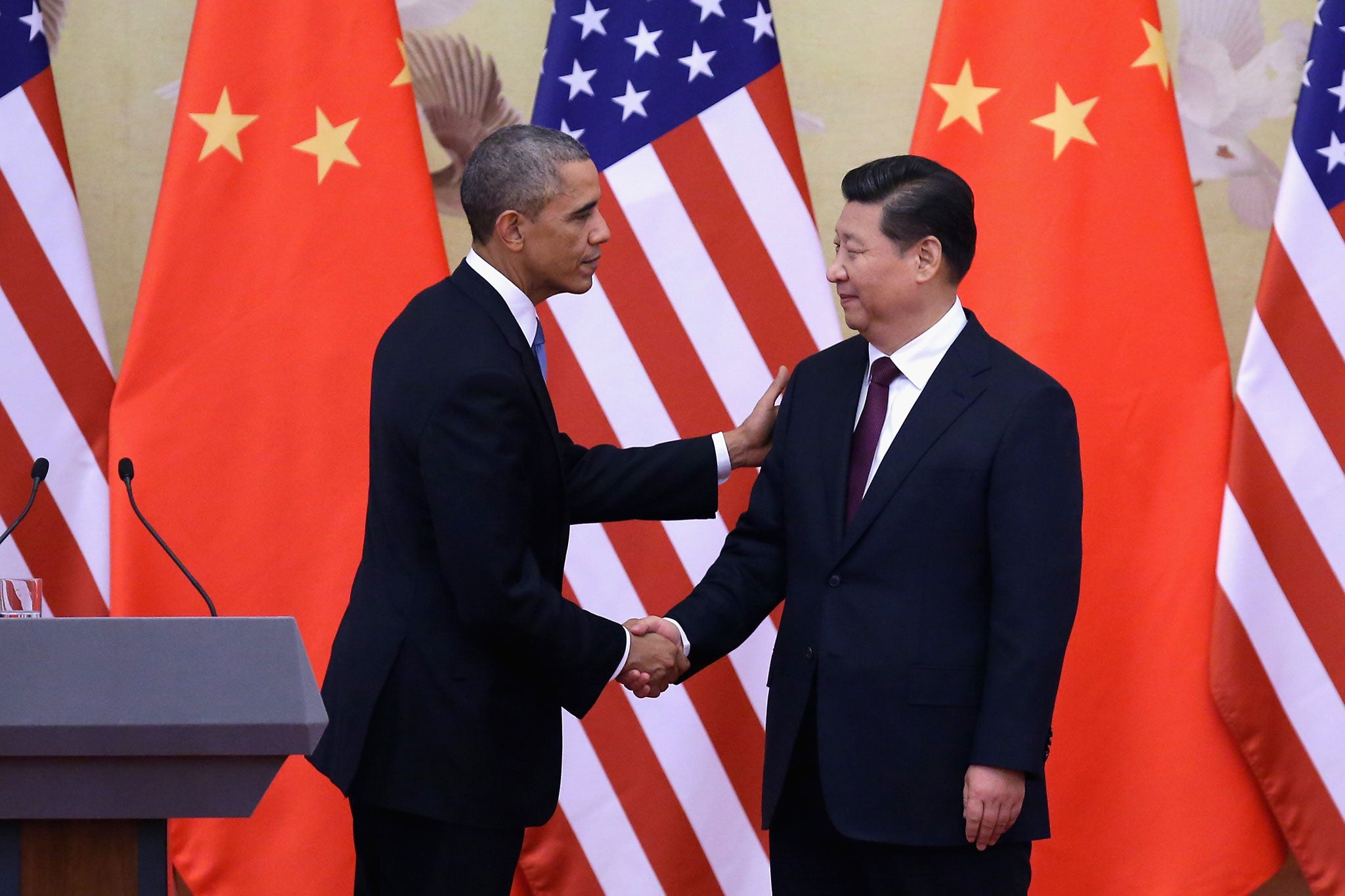Have the US and China just turned the tables on climate change?
Finally, the world's major polluters are taking real action


For decades a wall has separated political action from the scientific imperative on climate change. But with one handshake, the leaders of China and the US this morning breached that wall. When the world meets in Paris next year for a landmark UN climate summit, it may finally crumble.
Today’s climate deal means that the US will cut its output of carbon pollution by 17 per cent by 2020, and 26-28 per cent by 2025 against 2005 levels. That amounts to about a 16% cut by 2025 against 1990 levels. Whilst there is not yet clarity over the policies the US will pursue to deliver the raised ambition from 2020 to 2025, President Obama’s use of executive orders to make carbon cuts through to 2020 (that do not require Congressional approval) means that unless the Republican Party win the Presidency in 2016 it is very difficult to see how they could stop the progress that Obama is delivering.
For China, today’s deal marks the first time ever that they have put a cap on their emissions. They have established that their greenhouse pollution will peak by 2030 at the latest. Importantly, they have left the door open to bringing forward that date. That is significant since keeping global temperature rises below two degrees, the threshold all governments have agreed they don’t want to cross because of the enormous related risks , almost certainly requires that China’s emissions peak much sooner than 2030.
At the next round of UN climate talks - in Lima, Peru next month – a key discussion point will be whether China, Europe and other governments should also bring forward an interim 2025 goal, as the US has done already. Equally, there’s also a strong chance that China could agree to make an absolute target for carbon cutting – and go beyond its commitment of a date by which its emissions will peak. So today is unlikely to be the final word from China before next year’s important UN summit in Paris.
China’s promise today that they will get 20 per cent of their country’s energy from clean sources by 2030 is staggering. According to the Whitehouse, this “will require China to deploy an additional 800-1,000 gigawatts of nuclear, wind, solar and other zero emission generation capacity by 2030 — more than all the coal-fired power plants that exist in China today and close to total current electricity generation capacity in the United States." It is already the case that China’s coal use is now falling, and last year the country invested more in renewable energy technologies than the whole of Europe.
With new climate targets being adopted by Europe last month, we now have the nations responsible for more than half of global carbon pollution pledging serious climate action. This should give other major economies like India and Brazil the confidence to bring forward their own commitments and significantly increases the chance of a global agreement being reached in 2015. As the BBC’s Roger Harrabin explains, today marks a shift from “we won’t if you won’t” to “we will if you will.”
This is a new era. Those people telling us that climate change is not real or is not a problem are being left stranded in the wake of historical developments. For years, they’ve said we should not act because China and the US are doing nothing. Today’s deal kicks their legs out from under them. They’ll soon be back with new disingenuous reasons for inaction, but they are increasingly submerged by facts on the ground.
Joss Garman is Associate Fellow at the think tank IPPR
Join our commenting forum
Join thought-provoking conversations, follow other Independent readers and see their replies
Comments
Bookmark popover
Removed from bookmarks